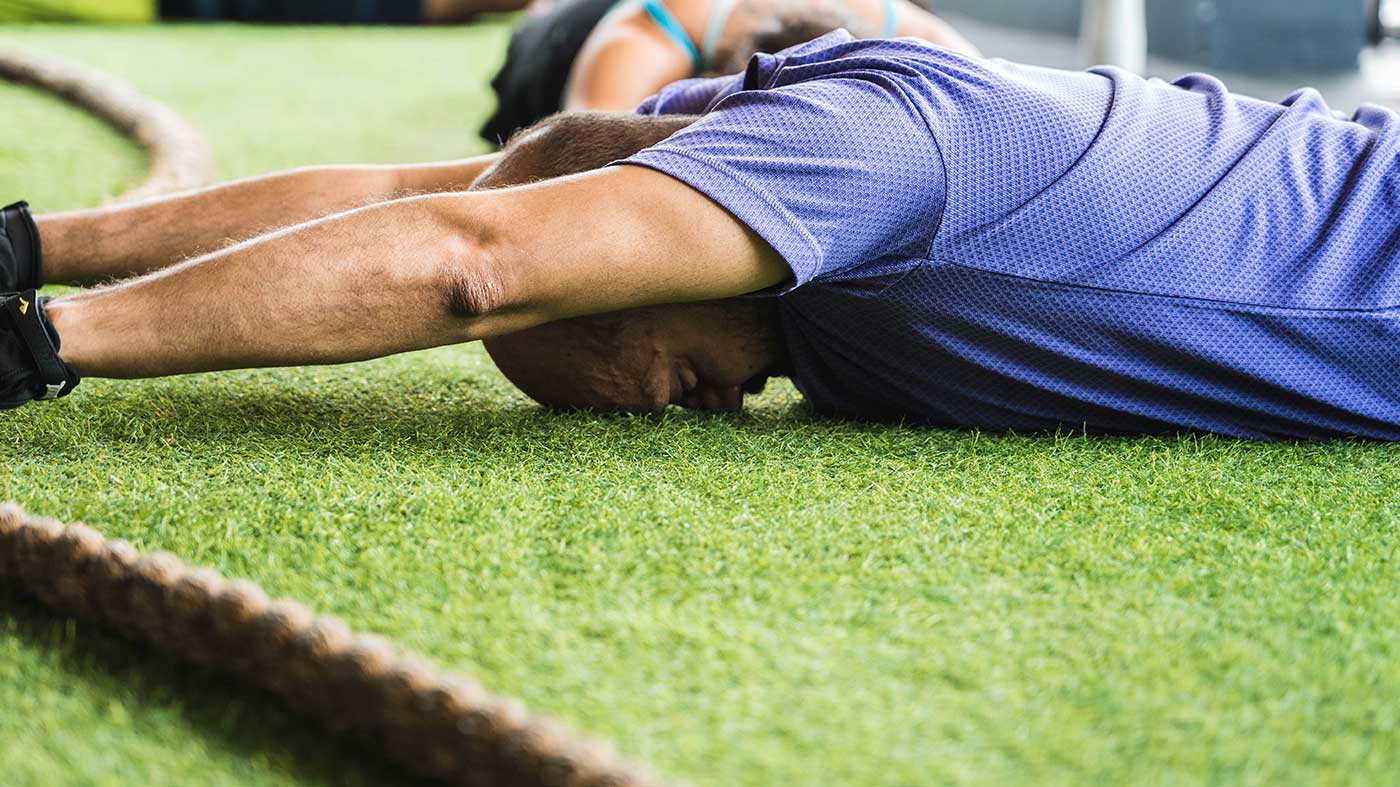Fitness & Wellness
Home Workout of The Week - Strength Training without weights

What is the first thought in your mind when you hear the words “strength training”? Unsurprisingly, it will be a colourful version of gyms full of fitness enthusiasts lifting weights. However, that is a stereotype long gone with many now taking it up as a part of their workout regimen without even joining a gym. It has enormous benefits for all which is why it is no longer restricted to power athletes and bodybuilders.
A bucket of cold water was thrown onto all of our strength training plans with the lockdown and subsequent closure of gyms and other workout arenas. This left us all isolated at home with zero equipment to build our muscle strength. However, is this true?
Certified strength training coach, Nikhil Mishra definitely belongs to the “Where there is a body, there is a weight” category as he showers his expert opinion on how to go about strength training without weights.
Are dumbbells and barbells the only way?
The first thing to know is you can never run out of things to lift. Right from the moment you lift yourself off the bed and pick the toothbrush, your muscles are up and running. They are pretty adaptable and do not need a dumbbell or a barbell to get stronger. So, you can make do by filling a bucket or an oil can with water, or even a backpack full of clothes or other utilities that can serve as free weights.
Fads versus facts
Just like many fitness enthusiasts who turned to bodyweight training during the lockdown, Nikhil suggests that performing exercises that use the total body are the most efficient when you are falling short of equipment. Why total body? Fitness challenges like holding a plank for the longest period or 30-day push-ups only target a specific muscle group and may lead to future problems if the total body isn’t engaged.
The expert advice here is to schedule workouts targeting the entire body. Breaking down a workout into a 3-4 day split will ensure rest and recovery for muscles that have been worked and allow the development of strength.
Unlike progressive overload using free weights, bodyweight exercises have a progression that can be modified to make it difficult. Progress comes slowly from bodyweight exercises, which is where you can increase reps eventually to make the most of every workout.
Another tip to build muscle efficiently while strength training at home is to focus on quality rather than quantity. Pausing at the bottom of a pushup or squat for that one extra second can help your muscles feel the burn. Once you master the technique is when you should move on to reps.
The back muscles are a stubborn bunch that cannot be targeted through just bodyweight strength training, except the lower back. For those who don’t have access to pull-ups, you can make use of household objects like a bucket to perform rows or perform table rows. The lower back can be trained by performing hyperextensions and superman holds.
Does it build muscle mass?
For those looking to pack on some size with bodyweight training, it may prove a bit difficult as seasoned gym-goers are used to the progressive overload that occurs with lifting heavier weights. Even though advanced bodyweight exercises don’t focus on size, they definitely give you a run for the money because of how difficult they are.
The good news for beginners is they can build strength and a fair amount of muscle mass by following a regimented bodyweight training program. Speaking of which, Coach Nikhil has a sample workout for alternating days so all of you can get your strength training done without any equipment. Keep in mind that this is only a template, the reps should be performed according to your fitness levels.
 Source: Zymrat
Source: Zymrat
Warm-Up
Standard warmup rules apply to this workout. The main aim of every warmup is to steadily increase the heart rate and warm up the joints and muscles for the workout. Grab a jump rope or do jumping jacks and some stretching exercises for 4-5 minutes to prepare for the workout. Here is a sample warmup routine for those who are new to exercising.
Workout 1 (For days 1, 3 and 5)
Push-ups (Perform this on a bed, wall or on your knees if the traditional pushup is difficult)
Upright rows (Use a bucket full of water or a filled backpack)
Superman back extension
Table Inverted rows
Bicep curls using a bucket or backpack
Diamond Push-ups (On knees)
Workout 2 (For days 2, 4 and 6)
Free squats
Wide stance sumo squat
Standing lunges
Calf raises
Crunches
Leg raises
Jumping jacks
Spot running
Cooldown
Cooldown is an often neglected portion of a complete workout that is of utmost importance for reducing muscle soreness and alleviating stress by stretching. For those who are confused about how to approach this integral part of a workout, here are some videos to help out.
Chest stretch:
Lats (Back) stretch:
Tricep stretch:
Legs stretch:
Abdomen stretch:
This is one of the best ways to strength train at home for all of you who miss the gym. Lifting heavy does provide a good sense of satisfaction at the end of a workout but strength training by working against yourself is a challenge tougher than anything you will ever face.






